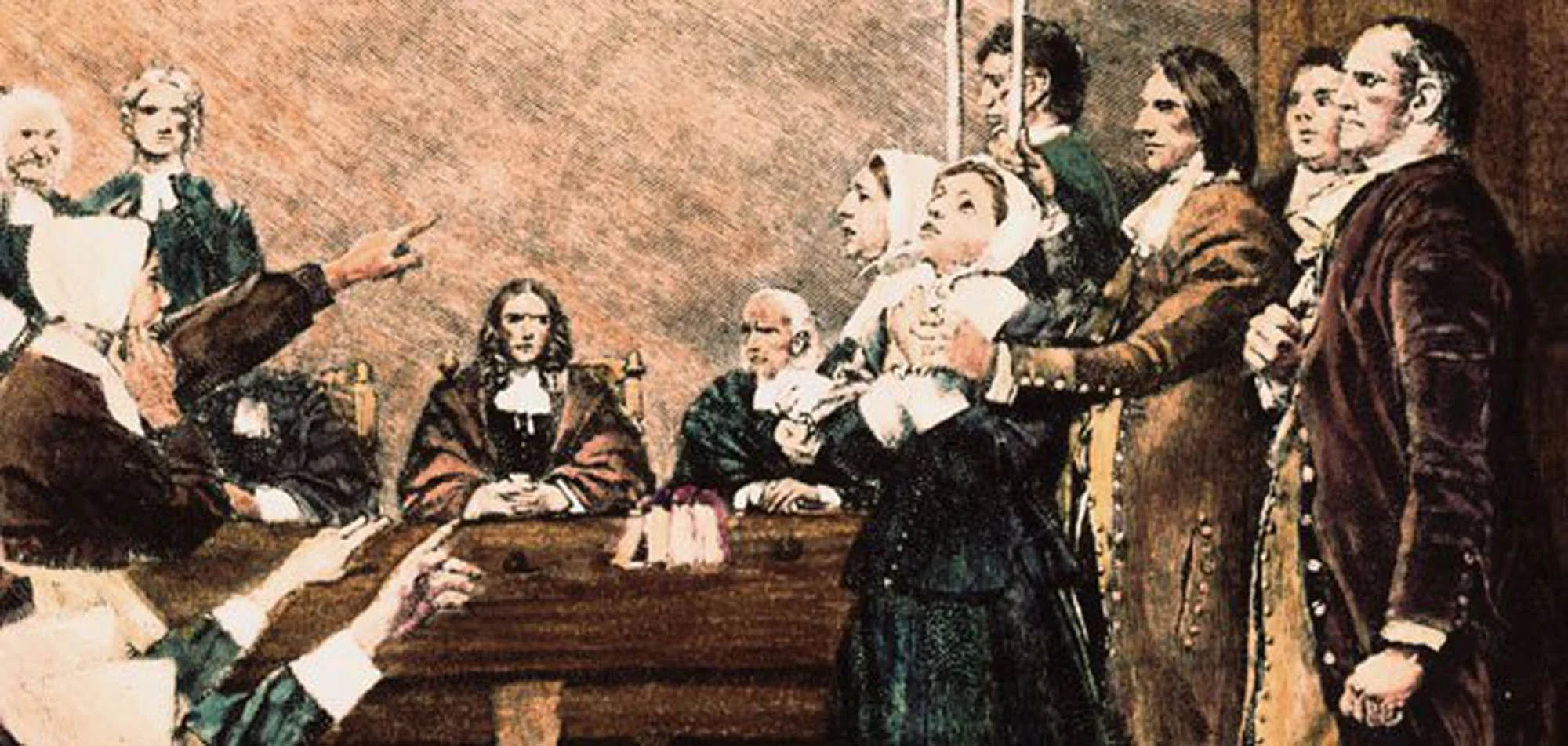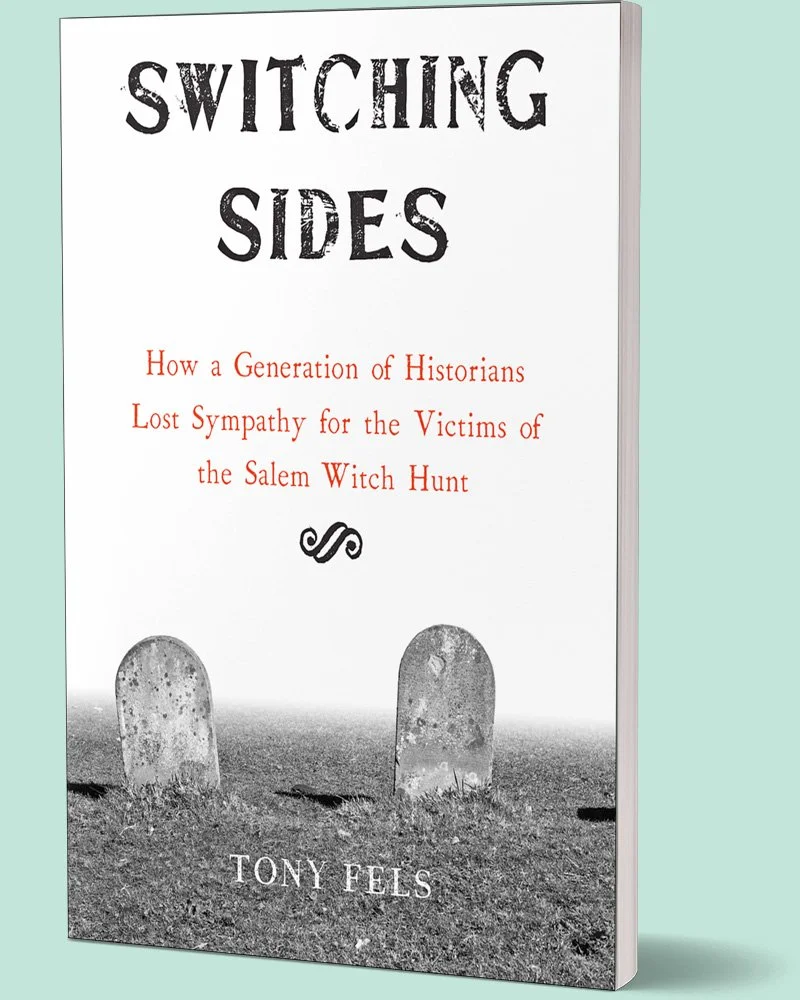Witch Hunting
Howard Pyle engraving, “Salem Witch Trial. Accusation of bedeviled girl.” Harper’s New Monthly Magazine, 1893,
https://smithsonianmag.com/history/a-brief-history-of-the-salem-witch-trials-175162489
Switching Sides
How a Generation of Historians Lost Sympathy for the Victims of the Salem Witch Hunt.
Switching Sides traces a remarkable shift in scholarly interpretations of the Salem witch hunt. For post-World War II historians – on whose work Arthur Miller based his 1953 play, The Crucible – it was axiomatic to sympathize with the witch hunt’s twenty innocent victims who went to their deaths rather than submit to Puritan intolerance. But in the leading works on the subject to emerge from 1969 through the early 2000s, historians have shockingly shown greater understanding for the witch hunt’s accusers, expressing indifference or even hostility toward the accused. Switching Sides explains how this surprising reversal came about.

